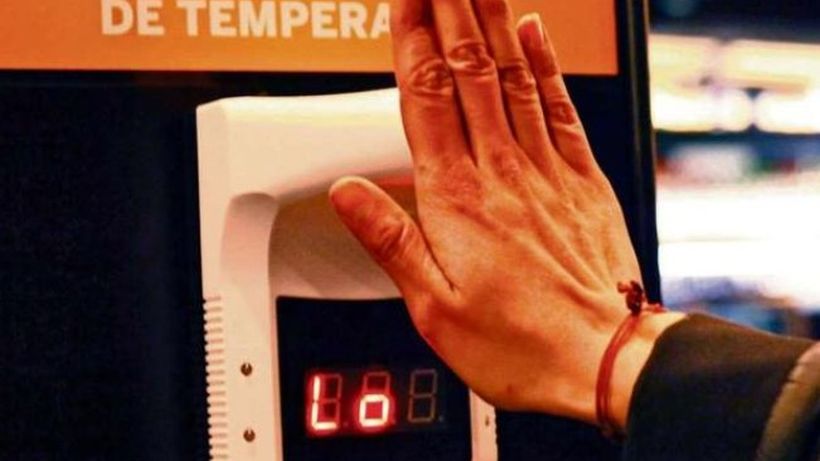
Temperature and other symptoms to detect cases of covid-19, such as those implemented in schools and practices around the world, proved inadequate to detect coronavirus infections and prevent outbreaks.
According to a study conducted with U.S. Marine recruits, despite the above-mentioned controls and strict quarantines prior to the start of their training, the recruits transmitted the virus even though almost none had symptoms. No contagion was detected by reviewing symptoms.
The study, published by the New England Journal of Medicine, has implications for higher education schools, prisons, meat processing plants, and other places that rely on these types of controls to detect infections and prevent outbreaks.
In Chile it also occurs, because currently before entering a supermarket, pharmacy or shopping center the temperature is measured.
“We’ve spent a lot of time implementing these kinds of measures and they may not be worth it as we expected,” said Jodie Guest, a public health researcher at Emory University in Atlanta, who was not involved in the study.
“Routine diagnostic testing seems to be best for this age group,” because young adults often have no symptoms, he said.
Military sample
The study was led by researchers from the Icahn School of Medicine, Mount Sinai Hospital in New York, and the Naval Center for Medical Research.
The study covered 1,848 recruits, 90% of them men, who were told to isolate themselves in their homes for two weeks, then were quarantined two more weeks under military supervision on a closed college campus: The Citadel, in Charleston, South Carolina. This confinement included having a single roommate, wearing masks, keeping a distance of at least 1.80 meters, and performing most outdoor training. Temperature and other symptoms were checked daily.
Recruits underwent coronavirus testing when they arrived at their military quarantine, as well as seven and 14 days later. Sixteen of them, about 1%, tested positive for their arrival and only one had any symptoms. Another 35, or 2%, tested positive during two-week military quarantine and only four had symptoms.
Only recruits who tested negative at the end of both quarantine periods were allowed to travel to Parris Island for basic training.
Genetic tests revealed six outbreaks.
“Many of the infections that occur don’t even warn that they’re happening,” said one of the studio leaders, Navy Commander Andrew Letizia, a doctor at the Naval Medical Research Center.
Quarantine measures and their compliance were stricter than those implemented on a typical university campus, said another study leader, Dr. Stuart Sealfon of Brother Mount Sinai.
"El reclamo puede ser genuino, pero construido sobre una mentira", apuntó el presidente Javier Milei…
El gobernador de la provincia de Buenos Aires, Axel Kicillof, encabezó un acto en Ensenada…
El diputado nacional de La Libertad Avanza, José Luis Espert, expresó su confianza en la…
Tras la masiva reaparición de Cristina Fernández de Kirchner, el presidente Javier Milei apuntó contra…
El principal propósito de la nueva comisión es evaluar los recursos humanos en el Senado,…
En una medida que busca redefinir las condiciones de los seguros de automóviles en Argentina,…
Esta web usa cookies.